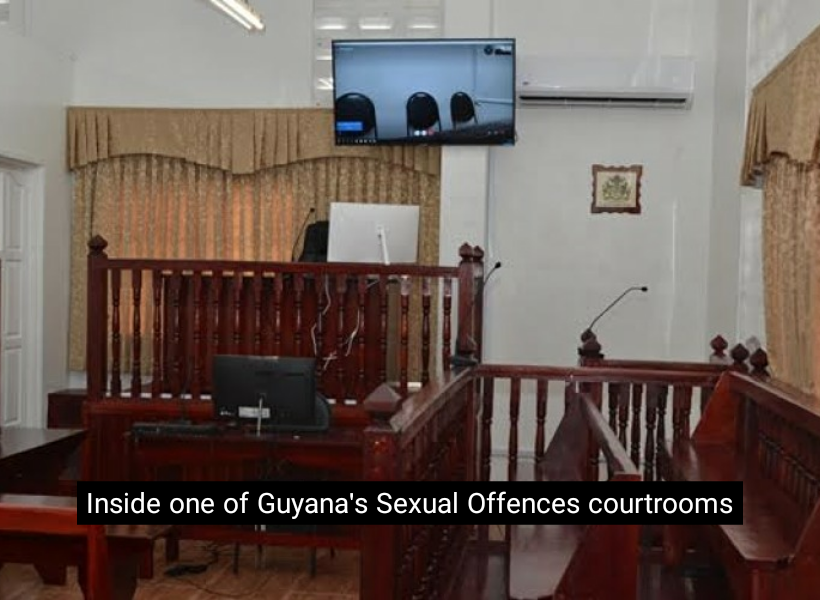Guyana has once again been recognized by the Trinidad-based Caribbean Court of Justice (CCJ). This time, it is for being the first country in the English-speaking Caribbean to establish a Sexual Offences Court. The CCJ made reference to this milestone last Thursday, when it delivered a landmark ruling in a sexual offences case emanating from Guyana.
CCJ Judge, Maureen Rajnauth-Lee, in her ruling, noted that such was the prevalence of sexual offences generally, and sexual offences against children specifically, that in November 2017, the Judiciary of Guyana established a specialized court to hear such cases.
She added, “The first of its kind in the English- speaking Caribbean, a Sexual Offences Court was established in the Supreme Court in Georgetown [in 2017]. Two such Courts have since been established, in Berbice and in Essequibo, in the year 2019.”
The Sexual Offences Courts are equipped with specialized features such as audio-visual devices to aid the testimony of witnesses and screens that provide complainants with a more suitable setting to face their alleged perpetrators.
With the foregoing in mind, the regional judge explained that Parliament of Guyana, in enacting the Sexual Offences Act in 2010, was ahead of the curve.
By the Act, the judge noted, a National Task Force for the Prevention of Sexual Violence was established and given the statutory duty to develop and implement a national plan for the prevention of sexual violence.
The Task Force is also mandated to report on proposals for a special court environment to try cases relating to sexual offences.
Director of Public Prosecutions (DPP), Shalimar Ali-Hack, has continuously praised the efforts of the Sexual Offences courts in adjudicating these sorts of cases.
In fact, she had said that since the establishment of the specialized courtrooms, there has been a significant increase in convictions for such cases.
The DPP had also said that since the introduction of the Sexual Offences Act of 2010, there has been a significant increase in the number of cases being reported to the police, investigated and being prosecuted.
“Guyana in responding to the changes in society in relation to the number and types of sexual offences being committed passed a new Sexual Offences Act in 2010. This Act is modern and it looks to new offences compared to the legislation which existed before. The offences are defined unlike before where we relied on the common law position,” the DPP had noted.









